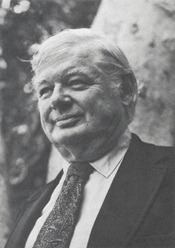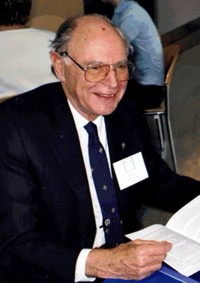28 God blessed them, and God said to them, “Be fruitful and multiply, and fill the earth and subdue it; and have dominion over the fish of the sea and over the birds of the air and over every living thing that moves upon the earth.” [Genesis 1:28, NRSV]
Ecological crisis has prompted criticism that the Christian doctrine of creation has had high negative influence on attitude about nature. For some time, the command to “subdue the earth” in Genesis 1:28 was used as an attack against Christianity. The allegations are:
- [a] That the culture of environmental-exploitation is a result of the mandate to subdue the earth, so that the ecological crisis that we face in every age, particularly in the present age, is a “graceless consequences of Christianity”.
- [b] That Christianity has transformed all powers of the universe into utilitarian objects for human beings, to misuse plants and animals and all powers of the earth for ideology of progress and for selfish ends.
The debate between two writers is representative of the common lines of argumentation.
In the late 1960s, Lynn White, a historian, alleged that the exploitative outlook that caused the ecological crisis in Western industrialised nations was the direct result of the Judeo-Christian’s tradition of humanity’s dominion over nature (Genesis 1:16). The Western mindset, he insisted, was that nature existed to serve humans. By its anthropocentric view of creation, he concluded, Christianity promoted a dualism involving humankind and nature. In his theory, as it emphasized “dominion”, Christianity sanctioned an exploitative ethic, and fostered science and technology as instruments of that exploitation. For him, Christianity was a threat to the environment and even the existence of the planet. At the door of Christianity, then, he placed a huge blame for the ecological crisis.
Arthur Peacocke, a biologist and theologian, entered a resounding rebuttal to Lynn White’s theory. Exploitation of nature that was harmful to the ecosystem and the welfare of future generations, Peacocke argued, antedates the Genesis text, for it started way back in primitive societies, and not specifically associated with the Judeo-Christian cultures. Furthermore, the Judeo-Christian tradition did not depict humanity’s dominion as simply exploitative. Rather, Genesis 1 clearly points to dominion as being a delegated authority from God, as vice-regent, steward, or manager. To be made in the “image of God” means human beings are representatives of God on earth.
In the face of the ecological crisis, Christians appreciate this “dominion” as humans acting on behalf of “God in transcendence and immanence”, so that God’s Sovereignty and Otherness on the one hand, and His nearness and closeness and even presence in creation, are respected.
This is where we find Peacocke particularly helpful. In emphasising God as immanent in creation, he proposes three roles for human beings:
- The role of priest: To see creation sacramentally, so that nature is worthy of humanity’s reverence.
- The role of prophet: A charge to call others to recognise the meaning of God’s action in the world.
- Co-creator with God: In relation to what we can do within God’s creation, the gift of all there is means, first and foremost, that God has rendered unto us the conditions of possibility for each one of us to work and produce in ways that give praise to the Creator.
The most critical of the three roles is arguably that of the “co-creator”. Today, science itself will provide the means for humans to cooperate and act as co-creators in God’s creative processes in nature. Science is not the cause of ecological crisis. Co-creators must make intelligent use of science, forego selfish ends, and make sacrifice of love for ecological wholeness. As individuals in community, people must be willing to be sufferers for God in creation uniquely seen in the Christian doctrine of Incarnation of Jesus Christ, that is, God’s “transcendence in immanence” in the world. Jesus’ life story not only tells of what he did, but what he allowed to be done to him in passion!
How does Pope Benedict see it?
Pope Benedict in his book, In the Beginning, took us to Karl Marx for whom the “Creator” and the “origin” of the universe were of no consequence. It was simply foolish, in Marx’s view, to explore questions of “whence” of universe and its design. It was foolish, he insisted, to look into the creating Intelligence. Marx had an agenda in saying all this: It is humanity (the workers) that must produce the real creation. Only this human production can count for something.
Pope Benedict suggests that here is the source of the change in humanity’s fundamental directive vis-à-vis the world, for right here, in Marx’s communist theory:
- “progress” has taken over and assumed the “real truth”;
- “matter” has become the material out of which human beings would create a world that was worth being lived in.
Ernst Bloch pushed the idea further, so that “truth is now what we take it to be and that the only truth is change.” Reality has become “a signal to invade and an instruction to attack.” Creation, then, is no longer the provider of the beauty and the radiance of truth of things, but the anticipated future which we must construct for ourselves. People will no longer need to distinguish between Sundays and workdays: there is no need for the Sabbath, for we are our own creators.
The problem in all this, is the attitude that views creation only as the product of chance and necessity, without linkage to God. Without that necessary linkage, creation has neither law nor direction of its own. In the past, we could only transform certain things in nature. Now, nature comes under complete human control and manipulation.
And yet, we find ourselves seriously endangered. The humility of faith has disappeared, shattered on the “arrogance of activity”. With such theories in vogue, we experience a serious loss of connectedness to the Creator-God in our “busyness”, which in turn leads to disconnectedness to the environment, to others, and even to ourselves.
From our own perspective, we appreciate the Creation of God as actualising new possibilities. The simple truth is, we can do likewise as co-creators, actualizing new possibilities for oneself in ways that contribute towards the common good, and promote human dignity.
Copyright © Dr. Jeffrey & Angie Goh, October 2017. All rights reserved.
You are most welcome to respond to this post. Email your comments to jeffangiegoh@gmail.com. You can also be dialogue partners in this Ephphatha Coffee-Corner Ministry by sending us questions for discussion.



